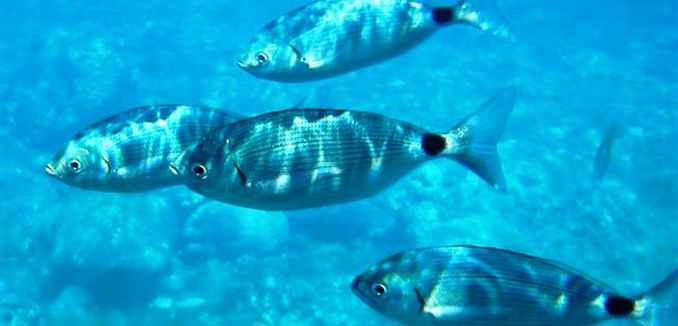Today, more than half the fish consumed around the world is farm-grown. Most farms overcrowd the fish, feed them massive amounts of antibiotics, and treat them with hormones and pesticides.
Yet despite concerns for human health and the environment, the aquaculture industry is growing an average of 6 percent annually to accommodate ever-rising demand.
To help assure higher quality production, the European Commission’s Horizon 2020 program and its Executive Agency for Small and Medium-sized Enterprises are investing millions of euros in a revolutionary open-sea aquaculture technology from Israel’s Gili Ocean Technology.
Gili Ocean’s Subflex (a contraction of “submerged flexible”) system, originally developed in cooperation with professors at the Technion-Israel Institute of Technology, features flexible cages that can be submerged underwater when there are strong currents and waves at sea.
“Growing fish in the open water greatly reduces the ecological impact,” CEO Yossi Melchner told ISRAEL21c. “The water quality is superb and you don’t need to add any external resources or energy because it is the ultimate habitat. But we need to deal with storms. This is why we started developing the Subflex technology in 2003.”
The Subflex system, which will include high-tech components such as sensors and image processors to boost efficiency, ease of use and cost-effectiveness, aims to make offshore aquaculture a long-term sustainable solution.
“The market for this solution is vast and growing because of the decrease in the quantity of fish worldwide and the sharp rise in consumption, together with increased awareness of the need to prevent environmental pollution in gulfs,” Melchner said.
A few other companies make stationery open-ocean cages that can be used only one at a time, he adds. “If you want to raise 1,000 tons of fish, you need several cages and you need to enter them in stages and shift them for feeding, harvesting and other tasks in the growth period. Our combination of submersible and flexible cages makes that possible.”
Single-point mooring allows the cages to rotate 360 degrees with the flow of the ocean, and an open-valve mechanism allows for submersion when necessary while protecting the structure and the fish.
A small-scale pilot project was installed in Israel in 2004 as a proof of concept. In 2006, Gili Ocean launched its first commercial system 12 kilometers offshore of Ashdod, producing 400 tons of fish per year.
Over the next three years, three additional systems were set up near Ashdod to raise sea bream and, soon, European sea bass. The cages can be custom-sized for any species of fish, and several types can be raised at once in separate arrays.
“Right now there is ongoing development of fast-growing fish such as Bluefin tuna and they need superb water quality and huge cages, and we have them both,” Melchner said. “We have collaborations with several world institutes developing the protocol for our system.”
The one-stop operation reduces the work and manpower involved in maintenance. Crews tend the cages from one vessel, which also saves fuel, Melchner added.
Gili Ocean recently won an Israeli government tender to launch what Melchner said will be the largest open-sea fishing system in the world, with a capacity of close to 2,000 tons of fish.
“We are ordering all the components and starting to establish the system in the next few months. We’re building a tailor-made ship for this project. Our goal is to revolutionize the Israeli market by supplying high-quality fish at low prices with no antibiotics.”
Gili Ocean founded a daughter company, Beresheet Aquaculture, to manage the project with funding from a private foreign investor. Melchner explained that although the Israeli government is interested in lowering the price of fish for consumers, it is not providing any financial backing for the project.
“We want to see how we can benefit the most from our platform,” he said. “We will try to do some tourist programs on weekends to promote awareness, and also will work with seaweed farmers because raising a byproduct would make the farms more efficient.”
Now based in the Sharon area, Gili Ocean started out as one of the first portfolio companies of the hiCenter private business incubator in Haifa.
(via Israel21c)
[Photo: Alberto Romeo / WikiCommons ]




